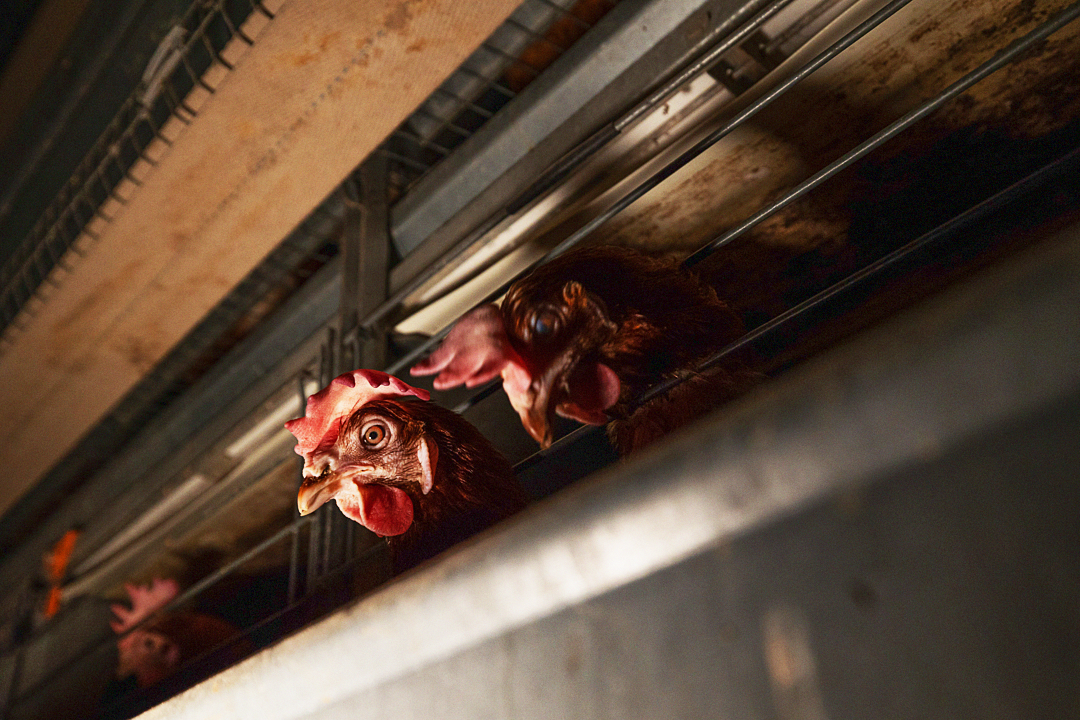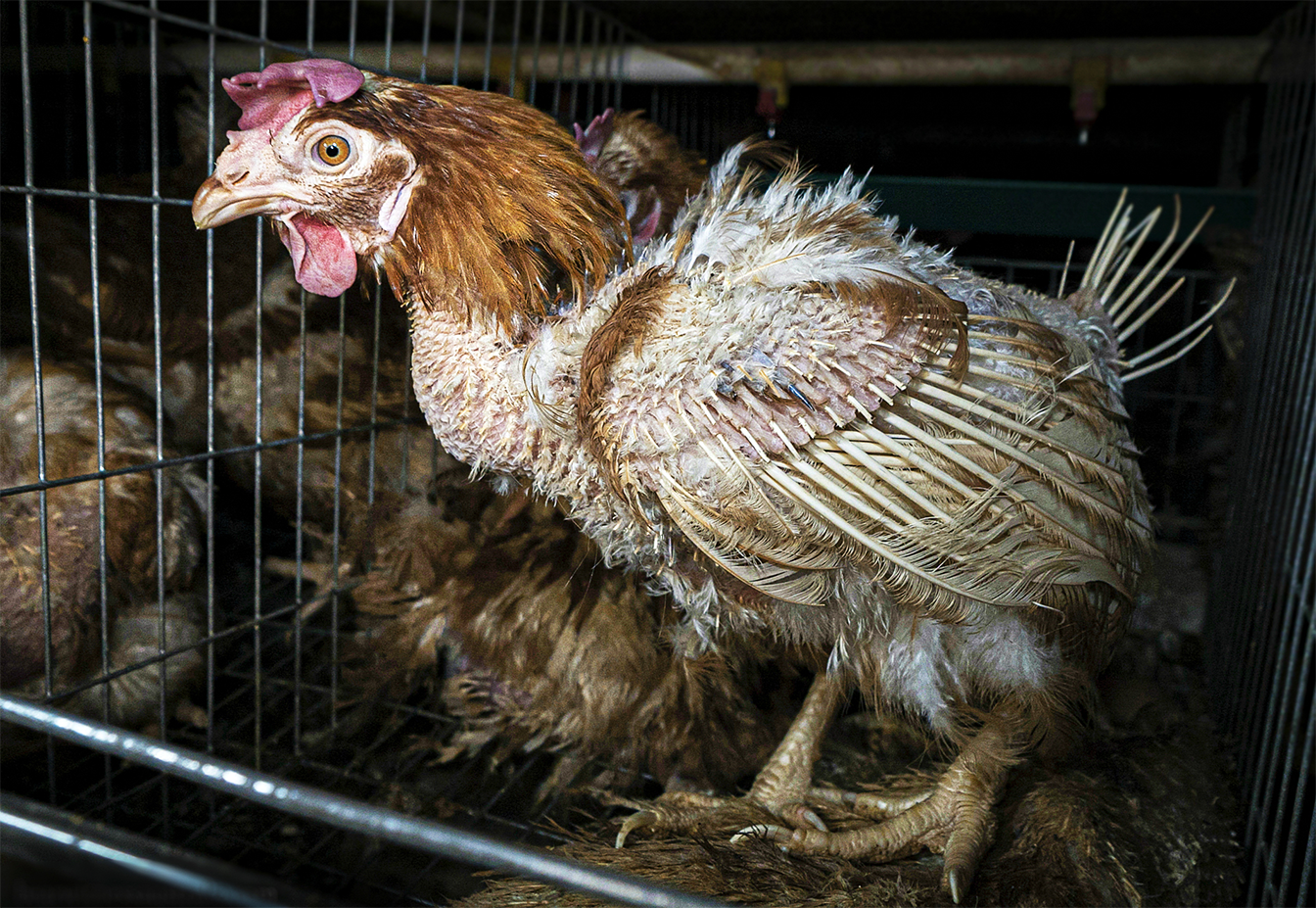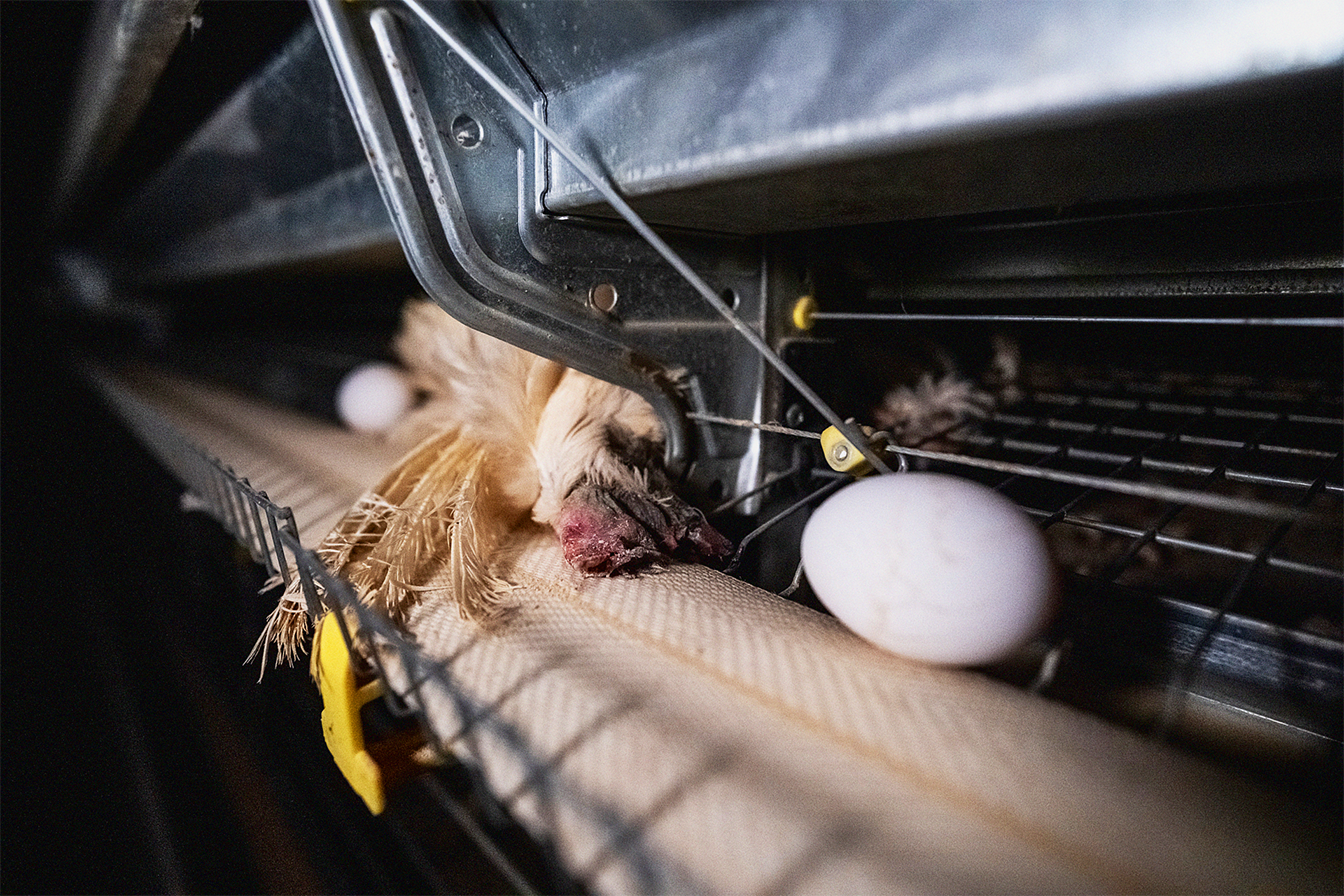
Your family deserves to know the truth about GIANT’s eggs.
LOW STANDARDS AT GIANT
Representative of typical battery cage facility
Many of the eggs on Giant’s shelves come from facilities you’d never choose to step foot in. Giant sources eggs from battery cage farms: filthy, dark sheds in which thousands of hens are crammed inside tiny wire cages. There’s no way around it — these industrial complexes are simply cruel and disgusting.
Egg-laying hens are forced to eat, sleep, defecate, and lay eggs in the same cage day after day. These facilities are so controversial that they’re banned in numerous states and dozens of countries. Even McDonald’s doesn’t use them.
Giant’s customers deserve better than such low quality standards and products.

GIANT IS STILL SELLING EGGS FROM BATTERY CAGES…
The majority of Giant’s eggs come from chickens confined in battery cages. According to the Center for Food Safety, cage conditions can compromise food safety. Hens in battery cages are “often covered in feces from birds in overhead cages, and are prone to drowning in manure trenches”' leading to increased contamination risks.
A 2023 study conducted by North Carolina State University found that housing environment significantly affects egg quality.
Eggs from conventional cages were consistently of lower quality compared to those from more extensive systems such as cage-free and free-range.
Producing eggs in battery cage facilities is illegal in numerous states and dozens of countries. Thousands of companies, including other major grocers, have also banned cage eggs from their supply chains.
Giant’s parent company, Ahold Delhaize, doesn’t even use cage eggs in its home country of the Netherlands. What does that say?
“I went through the massive warehouse-type structure with aisles and aisles of cages that stretched beyond 100 yards with the cages stacked on top of each other to 20 feet high or more … The stench was like a filthy bathroom that hadn’t been cleaned in a long time … I couldn’t wait to get out.”
- Bob Langert, former McDonald’s VP of Sustainability

Representative of typical battery cage facility
A recent survey of customers who shop at stores owned by Ahold Delhaize, including Giant, found that 85 percent opposed caged hen housing, preferring that hens be kept in open barns. The survey also found that the company’s labeling is misleading to a significant portion of its customers, who incorrectly believe eggs with certain labels at Ahold Delhaize stores are cage-free. This confusion and potential mistrust put the company’s brand reputation at risk.
It’s clear Ahold Delhaize’s customers expect the company to transition to 100 percent cage-free — and that their loyalty depends on the company sticking to its word.
Representative image
Animal welfare scientists and veterinarians around the world have condemned caging hens and consider this practice extreme animal cruelty. Meanwhile, food safety experts and scientists have long raised concerns about the quality and safety of products from caged animals.
It’s time for Giant to do the right thing – and follow the science.
Share this campaign
About Us
The Center advocates for responsible standards in the food sector. We advocate for industry leaders to advance practices that benefit all stakeholders from the farm to the dinner table.





